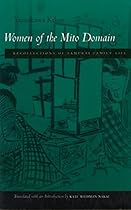

Eugénie Luce was a French schoolteacher who fled her husband and abandoned her family; migrating to Algeria in the early 1830s. By the mid-1840s she had become a major figure in debates around educational policies; insisting that women were a critical dimension of the French effort to effect a fusion of the races. To aid this fusion; she founded the first French school for Muslim girls in Algiers in 1845; which thrived until authorities cut off her funding in 1861. At this point; she switched from teaching spelling; grammar; and sewing; to embroidery―an endeavor that attracted the attention of prominent British feminists and gave her school a celebrated reputation for generations.The portrait of this remarkable woman reveals the role of women and girls in the imperial projects of the time and sheds light on why they have disappeared from the historical record since then.
#1260468 in Books Stanford University Press 2002-04-01 2002-04-01Original language:EnglishPDF # 1 8.50 x .90 x 5.50l; .70 #File Name: 0804731497222 pages
Review
0 of 1 people found the following review helpful. True story of life in Japan's civil warBy Traveller and readerThis is an essential volume for all those interested in nineteenth century Japan.16 of 16 people found the following review helpful. a realistic and engaging account of samurai lifeBy A readerThis is a very realistic and engaging account of samurai life just before the Meji restoration. Samurais are not idealised in this book; but instead their every day life is described. The focus is on women; as it retells history mainly from the view of the author's mother; but as women were completely dependent on men at the time; a lot of the account deals with how men as well as women lived. Topics such as school; dress; dwellings; amusments; family; marriage and divorce are covered; and at the same time the unrest in Mito domain before the restoration. The grandfather of the author had his own school and worked at the Office of Japanese History. He was one of the lower class samurai; but was recognized by the daimyo for his great learning and taught even his children at some point.If you want to understand Japanese society in the 19th century up to the Restoration; this is an extremly interesting book. Highly recommended!0 of 3 people found the following review helpful. I was very happy with and would buy from this dealer againBy Robin FThe product was as described. I was very happy with and would buy from this dealer again.